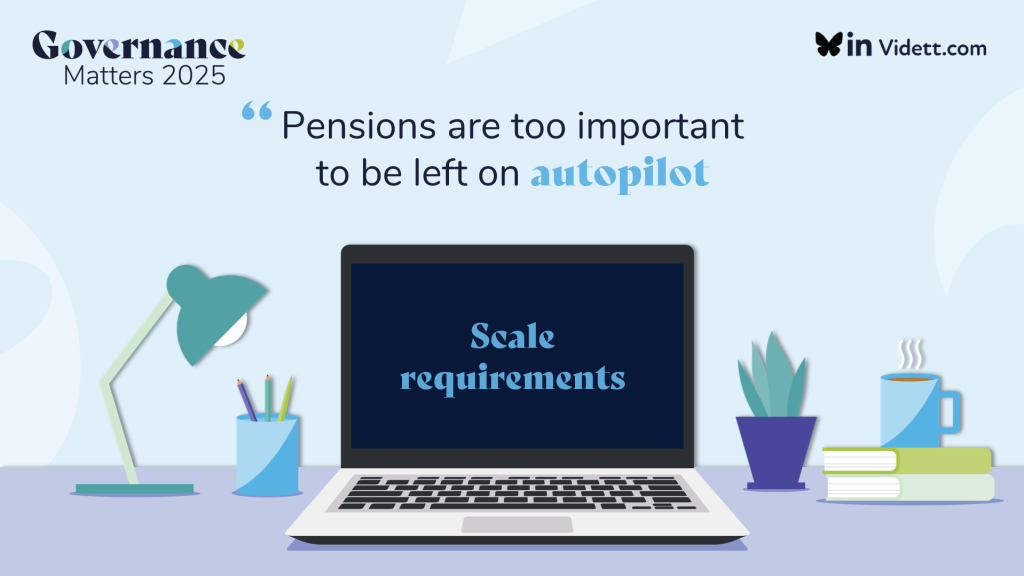‘Inclusion’ is a word that gets used a lot, especially at work. But what does it really mean, what benefits does it bring and what does an inclusive workplace look like in practice?
Straight away, it needs to be said that there’s no ‘one size fits all approach’ to inclusion. What works for one company won’t for another. Making your workplace truly inclusive depends on the industry you work in, and the specific needs of your employees.
We can’t tell you what inclusion looks like for your company. What we can do is show you what inclusion means to us, and what it looks like in practice at Vidett.
What does inclusion mean to us?
Defining what inclusion means to your company is an important step in making your workplace more inclusive. For us, inclusion means:
‘Creating accessible and supportive environments for all people regardless of their diversity. Everyone should feel empowered and valued.’
In an inclusive workplace where everyone is supported, empowered and valued, everybody benefits. Research by Korn Ferry suggests that inclusive teams make better decisions 87% of the time. What’s more, 73% of employees are empowered to perform their best when they feel their voices are heard in the workplace, helping them to grow alongside their employer. Diversity of opinion isn’t just nice to have, it’s crucial to a business’ success.
What does inclusion look like at Vidett?
Limeade (now part of WebMD) suggests that there are seven components to inclusion: having a voice, belonging, uniqueness, feeling valued, learning and development, collaborative environment, access to resources, and strategic alignment. This isn’t a checklist and shouldn’t stop you from trying your own inclusion initiatives that fall outside of these categories. But it can be a useful starting point. At Vidett, our efforts to create a more inclusive workplace have involved:
Internal training programme for EDI including annual LGTBQ+ training: Delivered by our dedicated equity diversity and inclusion team this programme has run since Vidett’s inception, receiving key support from senior management.
We’ve had great success with running our LGBTQ+ session in two parts, the first part being educational and then an informal open discussion internally. Making inclusivity sessions interactive is a great way for employees to make their voices heard and (when they are comfortable) share their own experiences, rather than feel like they’re being lectured. This session proved incredibly helpful for our employees, helping them understand other individuals’ points of view and preferences, making a more inclusive workplace for all.
Reasonable adjustments: These are important and can often help make things like rigid recruitment processes more accessible for neurodivergent candidates. However, they shouldn’t stop once someone is hired. Reasonable adjustments can help employees to be at their happiest and most effective, often at little cost to the employer.
Some examples of how we have made reasonable adjustments can be seen through our hybrid and remote working structure. Everyone’s situations are different, so giving employees more flexibility is important. For those who need it, we also offer text to voice software, allow consideration regarding office seating plan preferences, and host regular training sessions and workshops for internal requirements to help make a more comfortable, inclusive workplace.
Mental health awareness campaigns: Talking about mental health can bring with it serious stigma, especially in the workplace. Our mental health awareness campaigns are conducted regularly throughout the year, providing a safe platform for employees to talk to each other about their experiences. They also allow our employees to share their own relaxation techniques and methods they may use to improve their overall wellbeing.
Particularly when it comes to mental health, a huge part of inclusivity can revolve around making employees realise that they aren’t alone, and support is available when they need it. Our employee benefits include access to counselling, and we ensure that they are made aware of this periodically.
Where are we now?
Becoming and remaining an inclusive workplace requires ongoing work and reflection. whilst there’s always more you can do; our inclusivity work so far has created measurable results. Vidett has been certified as one of the best workplaces by Great Place To Work in three categories:
- best workplaces for wellbeing
- best workplaces for women
- best workplaces in financial services & insurance
As the research highlighted earlier suggests, when our employees feel included, our clients benefit too. In our recent client satisfaction survey we met the expectations of 100% of those surveyed and exceeded the expectations of 67% of clients. It’s clear that when a workplace is inclusive, everyone involved benefits.
If you’d like to know about improving equity diversity and inclusion in your workplace you can get in touch with Sarah Booth or the ED&I team here
You can read Cherilyn’s thoughts on National Inclusion Week here.




